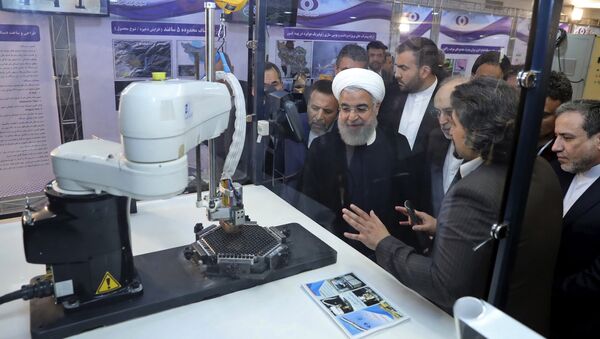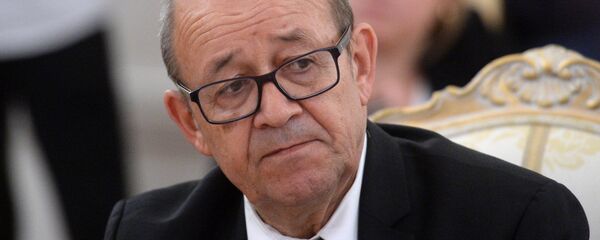Iranian political scientist Foad Izadi said that the possibility of Iran agreeing to a deal which will limit its ballistic missile development program is dead in the water.
"Tehran cannot clinch a new agreement with the US because Washington withdrew from the Iran nuclear deal just two weeks ago. For any Iranian politician, it would be suicidal to call for negotiating a new deal with the US given that Trump's follow-up president may scrap this document as soon as he takes office, something that Trump did in relation to Obama's legacy. That's why Iran is now not available for new talks," Izadi underscored.
READ MORE: Kremlin Underlines Importance of Iran’s Reaction to US Plan on Nuclear Deal
At the same time, he did not rule out that members of the P5+1 group, including Russia and China, could create a mechanism to somehow benefit from the Iran nuclear deal.
"If it works, Iranian political and public figures will be able to talk about the need for negotiations on an array of other sensitive issues," Izadi concluded.
China, Germany Unlikely to Oppose US
Ji Kaiyun, head of the Center for Iranian Studies at China’s Southwestern University, said that he believes, however, that the joint position of China and Germany on countering the US' anti-Iranian sanctions is "impossible."
"The sides can only coordinate their positions and maintain contacts so we cannot say that they will jointly work out the ways to solve the problem," Kaiyun noted.
READ MORE: EU Companies' Possible Withdrawal From Iran Contradicts Nuclear Deal — Tehran
He added that even though China and Germany will not oppose or enter into conflict with the US because of the Iranian issue, they will urge Tehran to show restraint and continue to implement the Iran nuclear deal, also known as the Joint Comprehensive Plan of Action (JCPOA).
Economic Confrontation With US Not Profitable for China
He was echoed by Irina Fedorova of the Institute of Oriental Studies with the Russian Academy of Sciences who argued that for China, it's not profitable to unleash an open economic confrontation with the US in light of efforts to preserve the JCPOA.
"China will act cautiously as usual, trying not to cause a tough reaction from the US. Apart from ways to preserve the Iran nuclear deal, the talks in Beijing may also focus on the issues related to prodding Iran to negotiate a possible new agreement which could be endorsed by Washington," Fedorova pointed out.
READ MORE: 'If EU Can't Act Independently With Iran There's No Future for Deal' — Scholar
Her remarks came after an unconfirmed report by the German newspaper Welt am Sonntag about next week's meeting in Vienna of diplomats from Germany, France, Britain, Russia and China who will allegedly discuss a new deal similar to the JCPOA.
Shortly after, Reuters cited European sources as saying that the Vienna meeting will actually "address the implementation issues and details of the JCPOA" and "not cover any other issues."
Earlier this week, US Secretary of State Mike Pompeo pledged to introduce the "strongest sanctions in history" on Tehran and warned in the wake of Washington's withdrawal from the JCPOA, which was announced by President Donald Trump on May 8. Pompeo also warned that any entity conducting business with Tehran would be "held to account" by the US.
READ MORE: US Putting Serious Pressure on Iran Nuclear Deal Participants — Moscow
The move has been criticized by a spate of European countries, including France, the UK and Germany which have signaled their willingness to remain JCPOA signatories.
The Iran nuclear deal was signed by the European Union and the P5+1 group of countries, including China, Germany, France, Russia, the UK and the US, on June 14, 2015.
The views and opinions expressed in this article are those of the analysts and do not necessarily reflect those of Sputnik.


